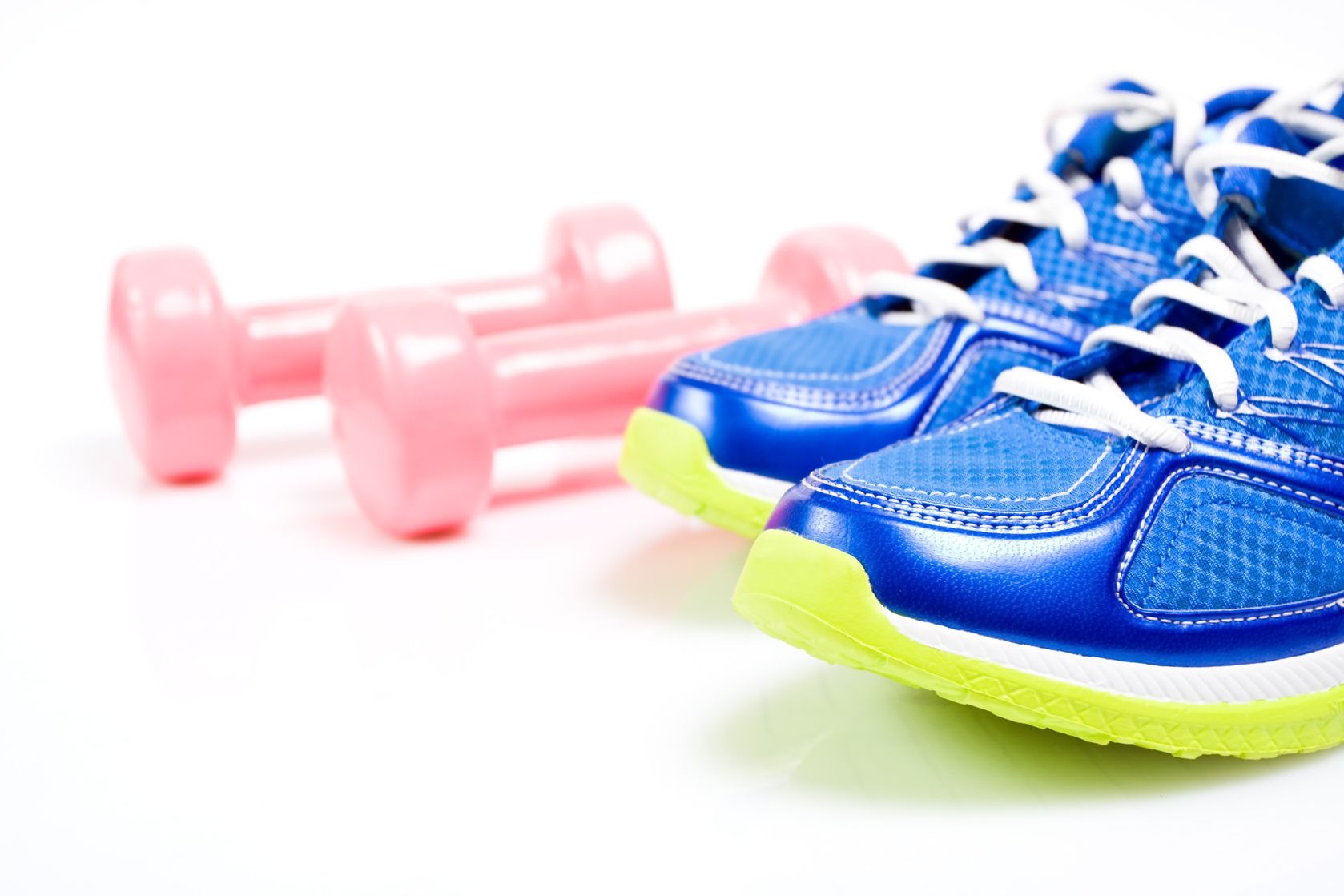Obtaining Life Balance—Where Do I Start?
We all have that one person in our lives who appears to have everything together. The person who seems to be able to do it all, enjoy it all, and always looks positively refreshed at the end of it all. Things come together with seamless effort, and as you stand in this person’s presence with your hair in disarray, gasping for breath, and in utter panic mode because you can’t find your keys, you wonder: “How do they do it?”
Well, finding balance in your life is a very individual thing and can look completely different for everyone. It involves a lot of introspection, honesty, and patience with oneself while changes are made into habits. They say it takes 21 days to break an old habit and 21 days to make a new habit. That means that within three weeks, you could be heading in one of two very different directions, depending on what you choose.
How Does One Achieve Balance?
This is the part where introspection and honesty come into play. Take some time right now to read through the first few steps and think about your answers.
- Roles: Make a list of all the words that can be used to describe you, all the different roles you have to play in your life (e.g. sister, mother, friend, athlete, chef, etc.)
- Prioritize: Put things in order from most to least important, taking into account the things you have to do as well as the things you want to do for yourself.
- Manage your time: This is by far the most important step, and it can make or break your routine if not done properly. Set your goals for the day, and don’t push yourself to accomplish things beyond this plan. Adding too much to your plate will make your day hectic, causing you to work less efficiently and burn out sooner. Planning the right number of things per day will leave you feeling accomplished and productive.
 Delegate: Do whatever you need to do to meet your deadlines, and things that don’t need to be done by you can be done by someone else. Don’t be afraid to ask for help if you need it. Most of the time, the people around you are not even aware that you are drowning in responsibilities and would be completely okay with helping out if they knew exactly how you needed help. So be specific when you delegate a task and remember to always be appreciative, even if its not done exactly how you would do it.
Delegate: Do whatever you need to do to meet your deadlines, and things that don’t need to be done by you can be done by someone else. Don’t be afraid to ask for help if you need it. Most of the time, the people around you are not even aware that you are drowning in responsibilities and would be completely okay with helping out if they knew exactly how you needed help. So be specific when you delegate a task and remember to always be appreciative, even if its not done exactly how you would do it.
- Plan ahead: Set things up today to make tomorrow easier. Prepare lunches and snacks, get your gym bag ready, set out your clothes for the next day, etc. A little bit of time spent today saves a lot of time running around tomorrow.
- Be patient with yourself: 90% of any experience is your perception of the experience. Every day will throw different challenges at you, and it’s important to be flexible with your schedule to avoid feeling discouraged. If you are getting frustrated with yourself for not working faster or being more focused, your whole day will take on that same vibe. Take everything one day at a time, and don’t forget to take deep breaths when you feel overwhelmed.
So Why Choose Balance?
Of course, we’d all like a reminder that our heads are still attached to our bodies every once in a while. That feeling of constant cloudiness, brain fog, and confusion can leave you disconnected from the world and struggling to make it through the day. But balance doesn’t just begin with getting your head on straight and clearing your mental fogginess. As a holistic health-care professional, it is impossible to see the body as anything but the whole, and this means that finding true balance begins on the inside.
GUT
We are all familiar with the phrase “you are what you eat.” But really, we should consider that we are only as good as the bacteria living within us. And because 75% of our immune system lives within our gut, we are really only capable of withstanding that which our bacteria can withstand. Thus, the balance of good and bad begins with the bacteria in our bodies.
 DIET
DIET
Once our bacteria and gut health are in order, we can feel more confident that the nutrients we eat can be properly digested and absorbed by our bodies. Our next challenge is the balance of proteins, carbs, fats, and micronutrients within our diet. Food is our fuel (and our medicine!), and the balance of our nutrients will be different depending on our health and fitness goals.
WATER
Depending on our age and gender, our bodies can be made of anywhere from 50 to 75% water. Without even feeling thirsty, our need for water on the cellular level remains the same. When dehydrated, body processes start to slow down and function inefficiently. Fluid balance is a key component of athletic performance and can be very dangerous if overlooked.
 EXERCISE
EXERCISE
Depending on your health goals and personal interests, your exercise regime will vary. For those who struggle with exercise, finding balance could just be about equating gym days versus non-gym days in a week. For those who exercise regularly, balance is more about the types of exercise you do and the variety that comes with cardio versus strength training, or low versus high intensity.
Regular exercise is great. It reduces our risk for all sorts of chronic diseases (heart disease, diabetes, depression). But one thing to realize is that our bodies adapt to whatever stresses we put on them. Our bones are constantly remodeling and breaking down, depositing cells into areas where stronger bone structure is needed. Runners have strong bones in their legs, but this comes at the expense of weaker bone structure in their upper bodies. This means that slipping and falling on ice could lead to a fairly easy fracture in someone with very weak bone structure.
Alternating your workout routines will give your whole body a workout and improve your overall fitness.
If you don’t have access to a gym, exercise could be intentionally taking the stairs or doing more gardening, housework, yoga, etc. Working out at home could include wall sits, pushups, planks, sit-ups, squats, and lunges.
SOCIAL
Even the most social of butterflies need a night to themselves every once in a while. And on the flip side, even the introverts can use a night out. Finding balance in your social life will allow you to get the rest you need, be productive at work, and keep your friends. If you are finding it difficult to fit exercise and socialization into your day, consider switching up your hangout from the bar stool to the boardwalk. Your friends and your bank book will thank you!
SLEEP
In a busy schedule, sleep is often the essential that suffers. On average, we need eight hours of sleep per night, but this number varies between people. Sleep is important for helping your body to repair, and it allows your immune system to strengthen itself and prevent you from getting sick. Many smartphone apps are available with timers that can be set to remind you to get ready for bed or turn off the TV. Once you learn how many hours of sleep you need to wake refreshed and function properly the next day, you can try your best to incorporate that into your daily plan.
Other Things to Remember!
- Maintain Your Support Network
For all the activities you carry out in a day, everything would seem like less of a chore if you didn’t have to do it alone. Running in a group is the perfect example of finding ways to be part of a supportive group while getting in your steps for the day. If cooking is a chore for you, get your kids involved with making salads, setting the table, washing dishes, etc. Turn on the music and make it a fun family experience!
- Stress Management
Laugh it off. Write your favourite uplifting quote on a business card, and stick it in your wallet so you always remember to keep cool in stressful situations. Keep your eye on the bigger picture and maintain perspective. Surround yourself with people who inspire and uplift you. Don’t take yourself too seriously, and always always always maintain your sense of humour.
- Live in the Moment
Focus on what you are doing right now, live in the present, and don’t worry about the past. Have an idea what’s coming in the future, but only so that it can help steer what you are doing today in the direction of what you want. Aside from helping you to do things properly, this drastically reduces the overwhelming burden you feel and can significantly reduce stress levels.
Last piece of advice for today: Don’t forget to breathe!
 Dr. Krysten DeSouza, ND
Dr. Krysten DeSouza, ND
She strives to share her knowledge and experience with patients to
help them discover more about their health and find relief from their
ailments.
www.desouzanaturopathic.com

 Stores
Stores